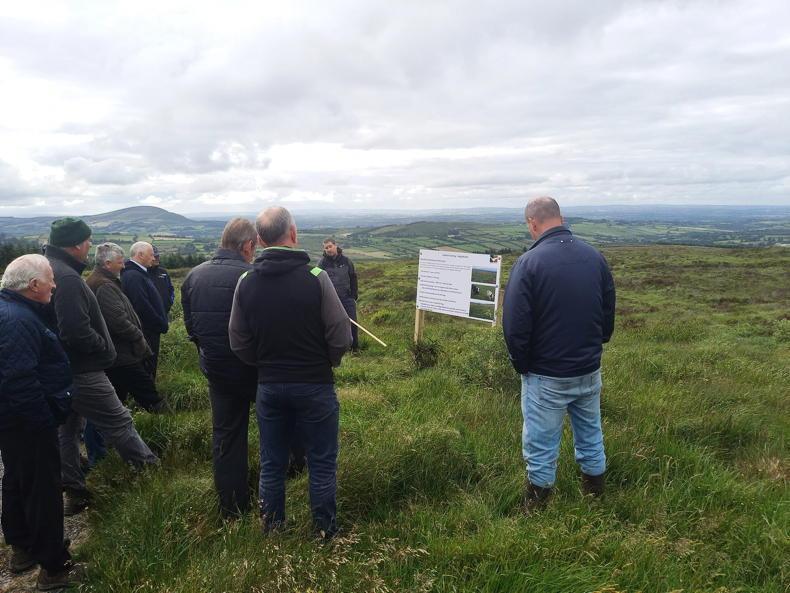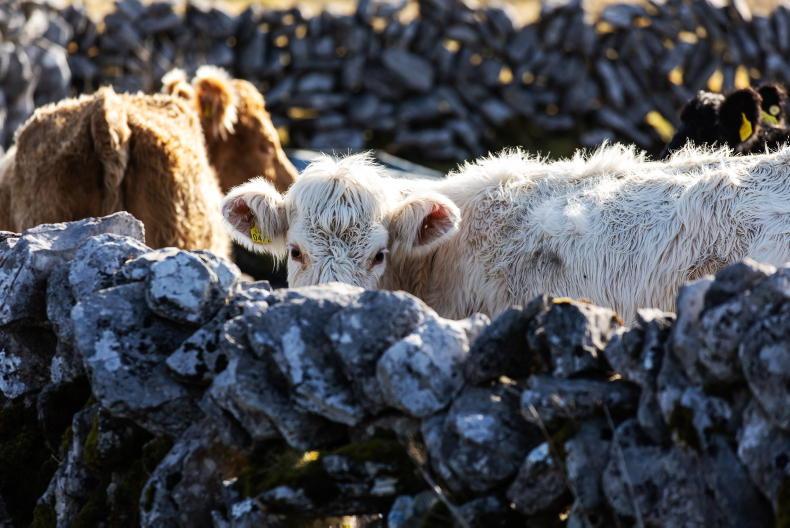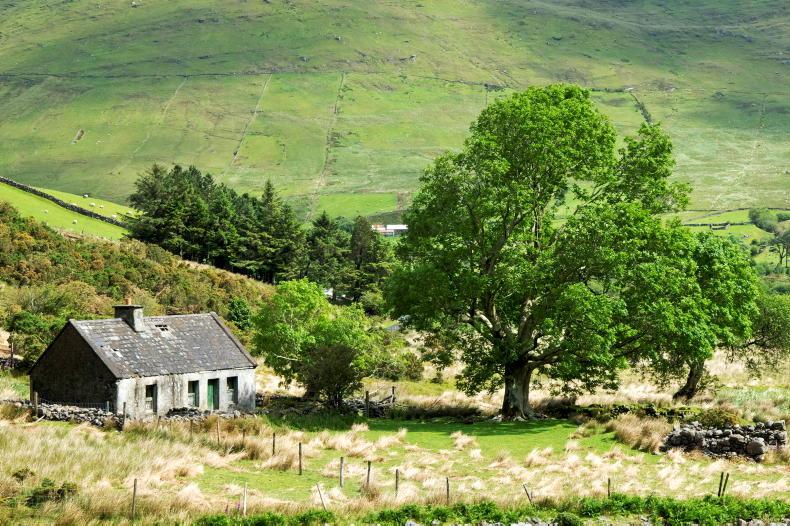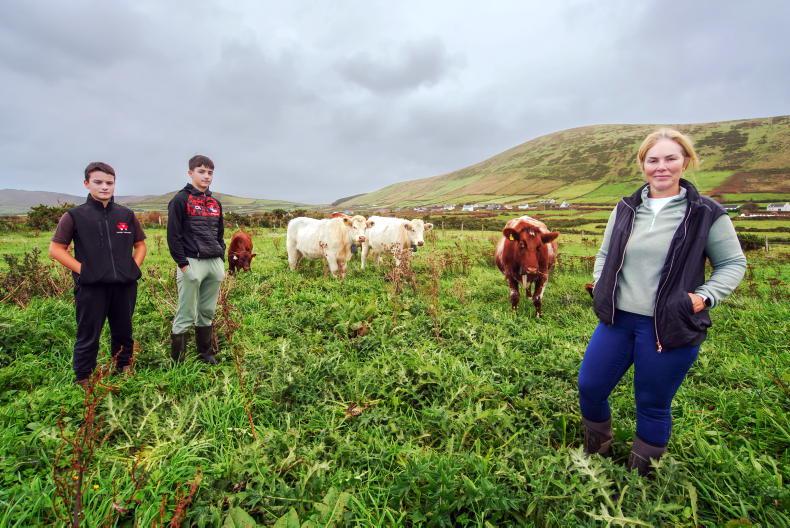The Agri-Climate Rural Environment Scheme (ACRES) co-operation teams in the Leinster, Munster-south Connacht and Breifne areas have praised farmers’ commitment to maintaining commonage habitat.
The teams were commenting after more than 100,00ha of commonage was scored by advisers in these three co-operation areas alone last year.
2023’s scoring shows the majority of parcels returned scores “well above” the four out of 10 needed to receive payment.
The Leinster co-operation zone saw scores average 6.5 and half of all commonage parcels surveyed scored good on vegetation structure.
Quality habitat
Vegetation structure is needed to ensure quality habitat for species including the curlew, snipe, hen harrier, kestrel and skylarks.,
The co-operation zone in Breifne saw scores averaging 5.6, with two in every five parcels showing good vegetation structure.
By removing dumping, managing invasive species and working to improve vegetation structure, farmers can increase a commonage’s score and boost payment rates under the scheme.
Programme director for the ACRES co-operation project across Leinster, Breifne and Munster-south Connacht Fergal Monaghan stated that these scores are positive news for scheme participants.
“We’re really pleased with the scoring so far. We understand the challenges the participants have faced over the past year and to see such encouraging results during this scoring period is a testament to the stewardship of these commonage shareholders,” Monaghan said.

An ACRES information and advice session run by the co-operation team.
“There are a number of measures they can take now, with support, as part of a road map to increase their scores.
“We are currently running commonage clinics across our zones to allow farmers to query the results, get feedback and advice on next steps.”
Munster-south Connacht and Leinster
The project manager with the ACRES co-operation project in the Munster-south Connacht and Leinster regions Padraig Cronin commented that these area scores show “commendable commitment to sustainable practices” by farmers.
This was demonstrated by the average parcel’s score coming to 5.5 and with one in every five parcels entered into the scheme seeing a score of eight or higher in 2023, he said.
Some 56% of areas in the Munsters-south Connacht zone reported that there were no invasive species found on commonage.
“This is a good news story and shows that these areas are delivering huge benefits for the wider environment,” Cronin said.
The co-operation project team is currently hosting commonage clinics across Leinster and Munster-south Connacht with the aim of informing farmers of how they can improve their score.
“A farmer commented recently at one of our clinics that it was great to meet one to one to discuss their commonage scores and learn what steps can be taken to solve issues on our commonages,” the project manager said.
The Agri-Climate Rural Environment Scheme (ACRES) co-operation teams in the Leinster, Munster-south Connacht and Breifne areas have praised farmers’ commitment to maintaining commonage habitat.
The teams were commenting after more than 100,00ha of commonage was scored by advisers in these three co-operation areas alone last year.
2023’s scoring shows the majority of parcels returned scores “well above” the four out of 10 needed to receive payment.
The Leinster co-operation zone saw scores average 6.5 and half of all commonage parcels surveyed scored good on vegetation structure.
Quality habitat
Vegetation structure is needed to ensure quality habitat for species including the curlew, snipe, hen harrier, kestrel and skylarks.,
The co-operation zone in Breifne saw scores averaging 5.6, with two in every five parcels showing good vegetation structure.
By removing dumping, managing invasive species and working to improve vegetation structure, farmers can increase a commonage’s score and boost payment rates under the scheme.
Programme director for the ACRES co-operation project across Leinster, Breifne and Munster-south Connacht Fergal Monaghan stated that these scores are positive news for scheme participants.
“We’re really pleased with the scoring so far. We understand the challenges the participants have faced over the past year and to see such encouraging results during this scoring period is a testament to the stewardship of these commonage shareholders,” Monaghan said.

An ACRES information and advice session run by the co-operation team.
“There are a number of measures they can take now, with support, as part of a road map to increase their scores.
“We are currently running commonage clinics across our zones to allow farmers to query the results, get feedback and advice on next steps.”
Munster-south Connacht and Leinster
The project manager with the ACRES co-operation project in the Munster-south Connacht and Leinster regions Padraig Cronin commented that these area scores show “commendable commitment to sustainable practices” by farmers.
This was demonstrated by the average parcel’s score coming to 5.5 and with one in every five parcels entered into the scheme seeing a score of eight or higher in 2023, he said.
Some 56% of areas in the Munsters-south Connacht zone reported that there were no invasive species found on commonage.
“This is a good news story and shows that these areas are delivering huge benefits for the wider environment,” Cronin said.
The co-operation project team is currently hosting commonage clinics across Leinster and Munster-south Connacht with the aim of informing farmers of how they can improve their score.
“A farmer commented recently at one of our clinics that it was great to meet one to one to discuss their commonage scores and learn what steps can be taken to solve issues on our commonages,” the project manager said.











SHARING OPTIONS